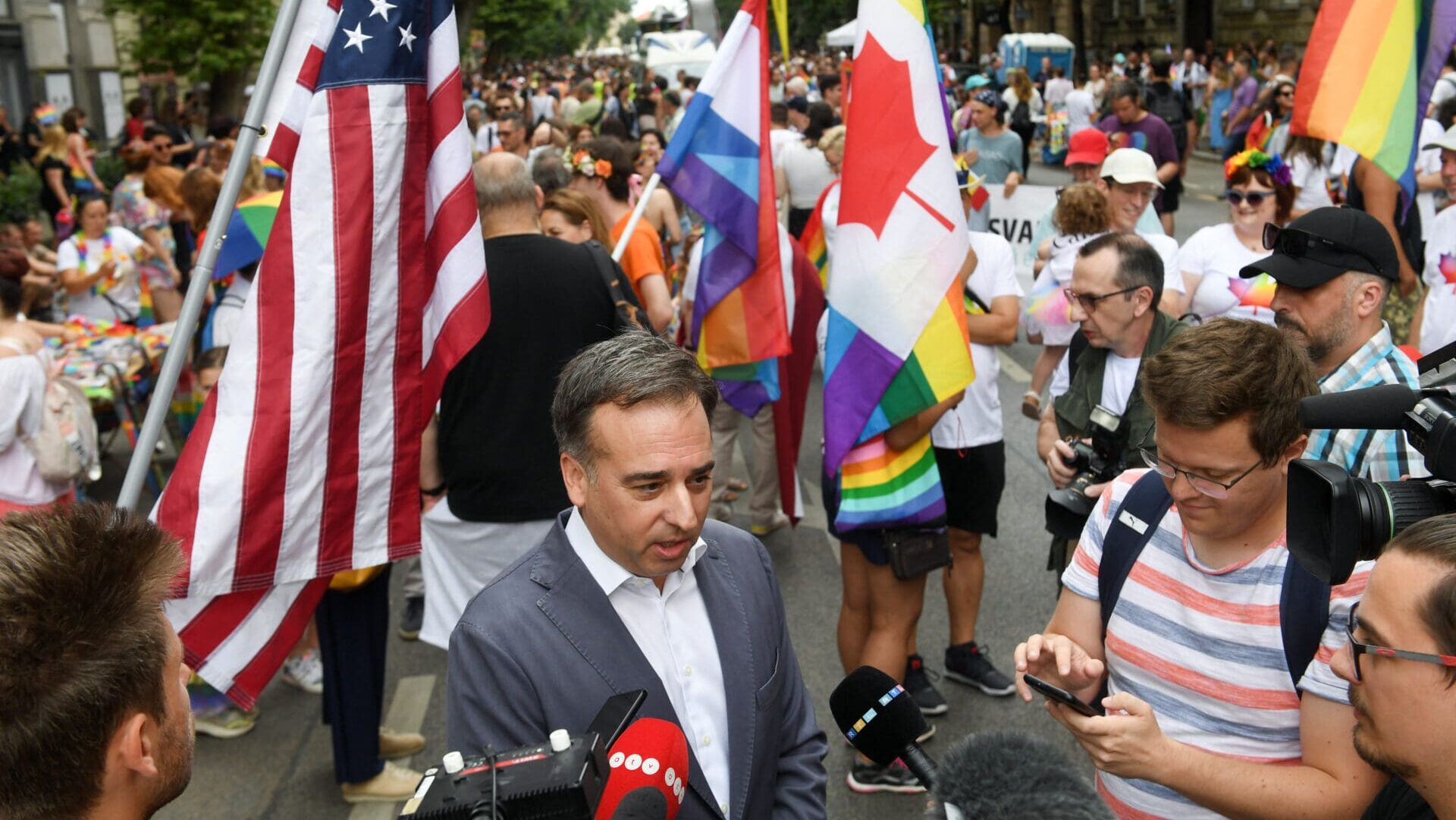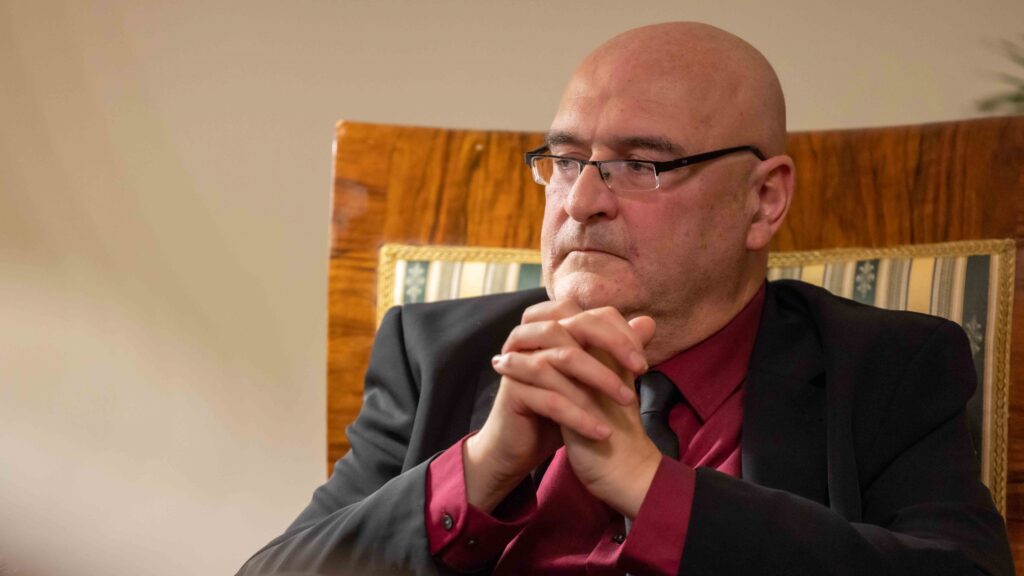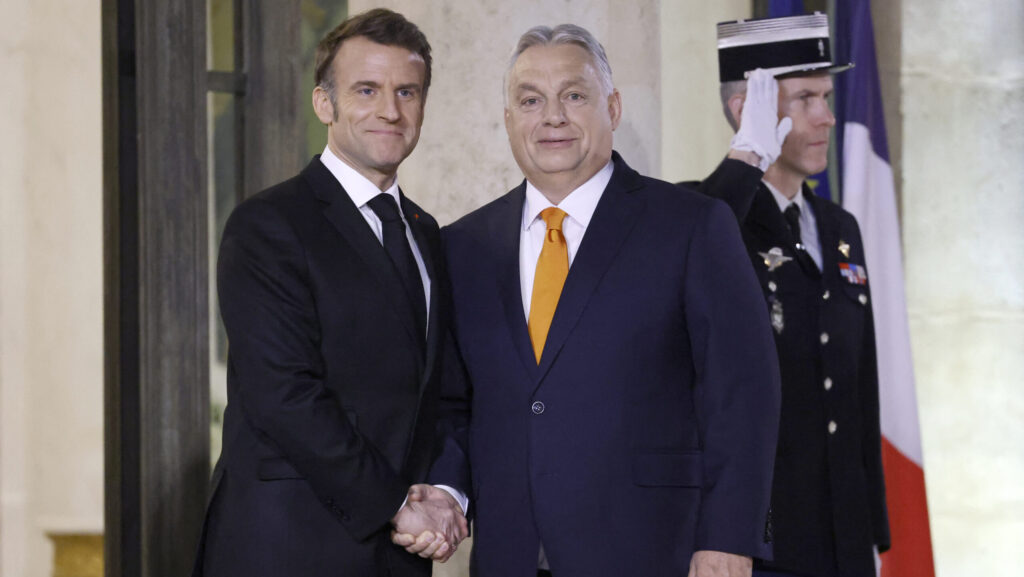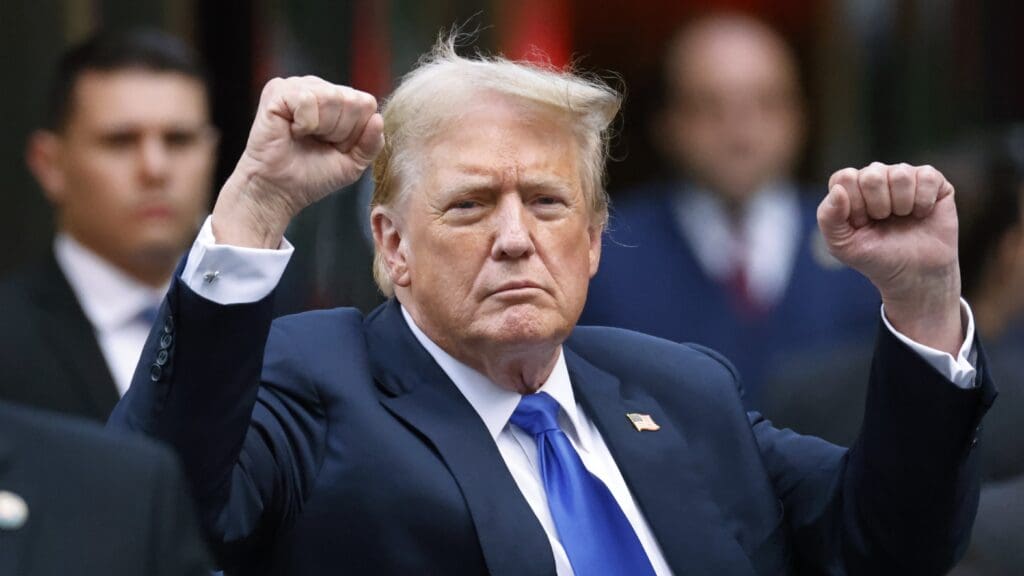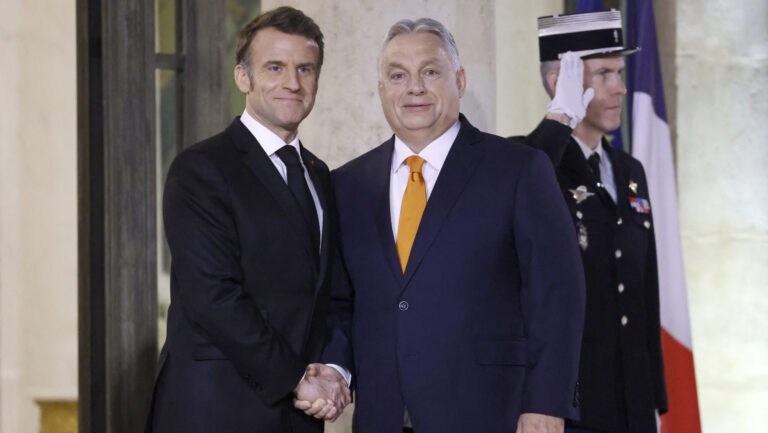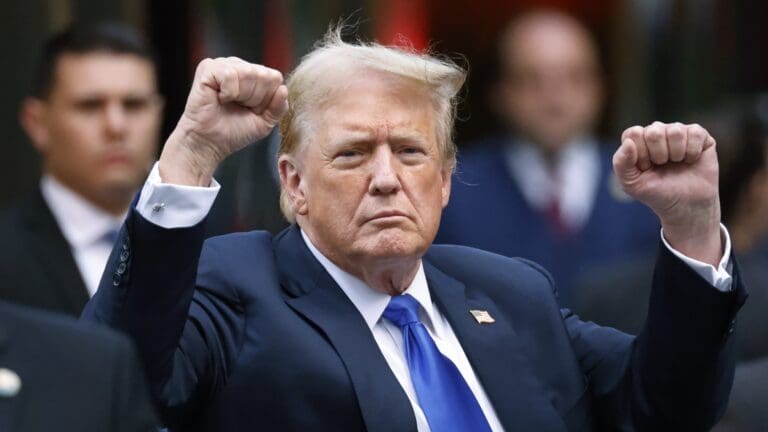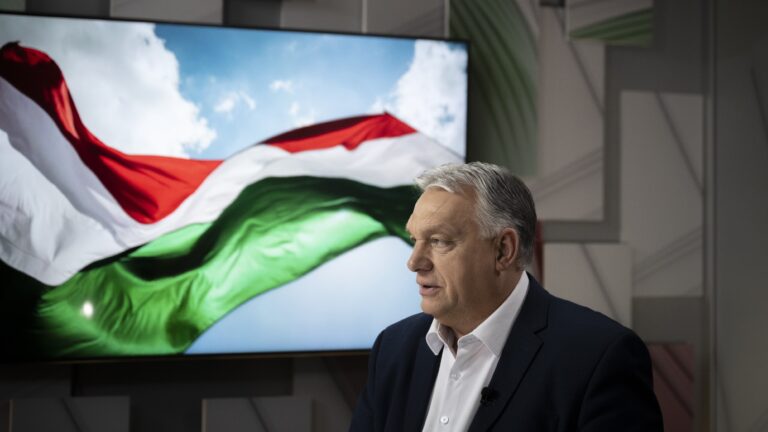Speaking at a ceremony in Budapest to mark the 248th anniversary of the independence of the United States, US Ambassador to Hungary David Pressman repeatedly mentioned Hungarian Prime Minister Viktor Orbán and the strained relationship between the Hungarian and US governments.
At the beginning of his speech, Pressman described Orbán’s visit to Kyiv on Tuesday as an important trip and a significant step. According to the ambassador, the United States has always encouraged the Hungarian and Ukrainian governments to engage in direct, high-level discussions to resolve their differences. ‘We will watch carefully to see what comes out of today’s meetings, but it is important to acknowledge that they are taking place. While we would have loved to have him and his team here today, it is far better that they are there,’ Pressman said.
The US Ambassador then addressed the upcoming US presidential elections. He remarked that one reason he knows there will be elections in the United States in November is that ‘your Prime Minister continues to remind us daily who he would like to see win these elections and who he would vote for if he were an American.’
According to Pressman, no other country among Washington’s allies or partners has a leader who, like Viktor Orbán, ‘overtly and tirelessly’ roots for a particular candidate in a US election, apparently convinced that ‘it only helps Hungary, or at least helps him personally.’
The Ambassador went on to say that it is dangerous to politicize bilateral relations along party lines between allies, especially at a time of such tension. ‘It does not serve the Hungarian people and, along with a number of other strategic decisions made in Budapest, risks changing the relationship between Hungary and America,’ Pressman said. He added that while the Hungarian government may see its relationship with the US as a political issue, the reverse is not true. ‘The US–Hungary relationship is based on the shared aspirations of our people—Hungarians and Americans—to live freely under democracy, rule of law, and security. The Hungarian government would do well not to cheapen that with politics,’ he said.
In relation to Pressman’s last statement, it is worth noting that, not so long ago, in March, US President Joe Biden spoke at a campaign event,
claiming that Viktor Orbán is building a dictatorship in Hungary.
Biden used this statement in an attempt to discredit Donald Trump; so in fact, it was the US President who introduced partisan politics into the relationship between the United States and Hungary. After this statement the Hungarian Foreign Ministry summoned David Pressman.
In his 4th of July speech the US Ambassador also stressed that there is no other country with which the US alliance is as precarious as it is with Hungary.
It is worth recalling that the Hungarian-American relationship deteriorated in 2021, with the beginning of the Biden administration’s mandate. The worsening of the relationship is certainly not Hungary’s fault: the Washington administration has taken increasingly tough steps to put pressure on Hungary, starting with the termination of the double taxation agreement for Hungarian citizens living in the US and placing Imre Laszlóczki, then Vice-President of the International Investment Bank, on a sanctions list.
In an interview following his visit to the United States in March Viktor Orbán stated that Hungarian–American relations are strained, and with the current US administration, there is no way to progress the relationship. According to PM Orbán the reason behind this is Washington’s pro-war stance, which contrasts with Budapest’s pro-peace position. The Prime Minister also expressed that a potential victory of Donald Trump in the November presidential election could significantly improve the relations between the two allies.
Related articles:

